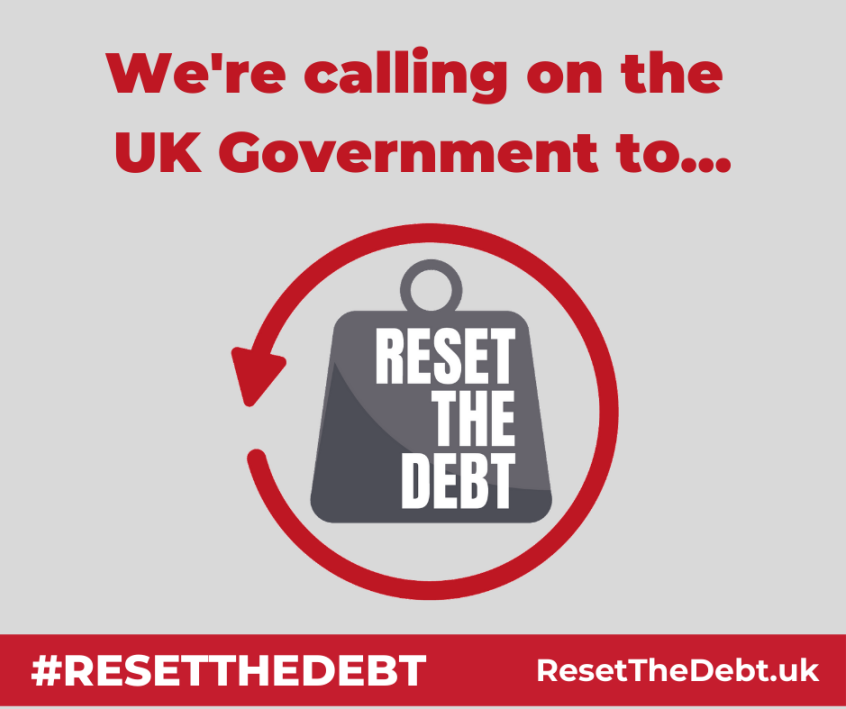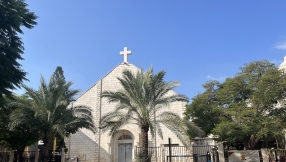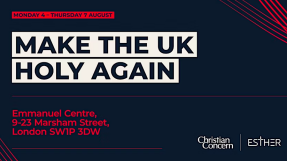
The Government is being urged to cancel the debt of people who have fallen into hardship after months of coronavirus restrictions.
The Reset the Debt campaign is the joint initiative of the Baptist Union of Great Britain, Church Action on Poverty, the Church of Scotland, the Methodist Church and the United Reformed Church.
They warn that an estimated six million people in the UK have fallen behind on rent, council tax and other household bills because of the pandemic, while one in five people have borrowed to buy essentials like food.
The coalition says that low income families, younger workers, members of BAME communities, and carers have been especially hard hit by job losses and the economic climate.
The Rev Richard Teal, President of the Methodist Conference, said the cancellation of unavoidable debt could "bring stability" and offer a "more hopeful future" for the millions of people in the UK struggling to cover the cost of basic necessities.
He said that those on low incomes "cannot be forgotten as we move into what will be a challenging winter ahead".
"This call comes out of what churches have seen in communities throughout the country," he said.
"We know that during lockdown people have focused on keeping themselves and their families safe and fed – and for many that meant bills or even some rent had to go unpaid.
"These families are now facing a crisis and this is simply not right.
"The fact that Covid debt has disproportionately affected low income families demands a compassionate and just response."
The campaign has been inspired by the Old Testament concept of Jubilee and the forgiveness of debts.
Rachel Lampard, Team Leader of the Joint Public Issues Team for the four Churches, said: "As Christians, we see Jubilee as being about more than just economics.
"The Jubilee principle allows relationships to be reset, communities to be re-balanced, and people's dignity to be restored. This is the well-being that God desires for all people.
"That is why we are asking the Chancellor for a Jubilee Fund to pay and cancel the debts of people who have been swept into debt by Covid-19.
"Covid-19 has shown us that we are all far more reliant on each other than we had previously acknowledged. Yet those we have come to rely on for our essentials are often those who have been hit hardest by lockdown debt.
"Without a debt Jubilee, those who are least able to bear it will continue to carry the heaviest financial burden long into the future."
Rev Dave Warnock recently opened a debt counselling service in one of the five churches he is responsible for in the Wythenshawe area of south Manchester.
The area is close to the airport, where many people have lost their jobs because of the reduction in air travel during the pandemic.
In addition to struggles with debt, there has been an increase in demand for food donations, with one of his churches making around 10 deliveries of emergency food parcels every day to local families.
He added: "Digital poverty means the government support that is available can often not be accessed because everything is done on the phone or internet."
The Reset the Debt campaign is asking people to write to their MP to advocate for the cancellation of unpayable debts.
Niall Cooper, Director of Church Action on Poverty, said: "The past few months have been hard enough for all of us, but for those families who have lost income and been saddled with unpayable debts and possible eviction, the pressure is unbearable.
"To enable these families to get through the hard months ahead, it is essential that the burden of unpayable Covid-19 debts is lifted."
Diane Watts, Interim Faith and Society Team Leader of Baptists Together, said it was unfair that those already living on the breadline were suffering the most during Covid-19.
"It is not right that those with the fewest resources should bear the heaviest economic burden of the lockdown, potentially for years to come," she said.
"As churches, we've been at the forefront of supporting those who've struggled throughout the pandemic. We know that action needs to be taken now, to ensure that everyone is included as we move into the next phase."













